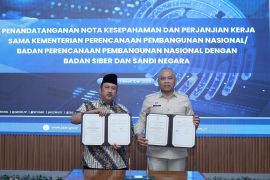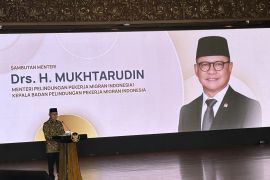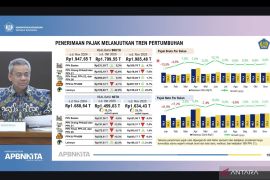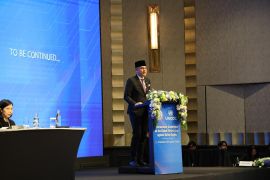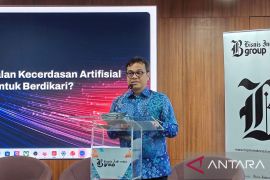Indonesia critically needs to shift its support from fossil fuels to renewable energy to meet climate targets and energy mix targets and reduce dependence on fossil fuels that are volatile in priceJakarta (ANTARA) - The Indonesian government's fiscal support for fossil fuels is still too large, so it has the potential to slow down the energy transition and drain the public budget, according to the International Institute for Sustainable Development (IISD).
"Indonesia critically needs to shift its support from fossil fuels to renewable energy to meet climate targets and energy mix targets and reduce dependence on fossil fuels that are volatile in price,” Anissa Suharsono from the research institute said in a press statement here on Thursday.
She is the lead author of a report entitled Indonesia's Energy Support Measures: An Inventory of Incentives Impacting the Energy Transition. The study covers government support, which is officially classified as subsidies and incentives that support various types of energy in Indonesia.
She said Indonesia’s incentives for fossil fuels are 117 times higher than for renewable energy. Out of the total energy support in Indonesia, which reached Rp279 trillion in the 2020 fiscal year, about 88 percent (or Rp246 trillion) was allocated for fossil fuels.
According to the IISD report, the government is providing support of at least Rp74 trillion for the oil and gas industry, Rp112 trillion for fossil-based electricity, and Rp61 trillion for the coal sector.
The incentives for fossil fuels are 117 times higher than for renewable energy, pegged at only Rp2 trillion or less than 1 percent of the total support for the energy sector. Meanwhile, Rp31 trillion is being provided for biofuels and Rp19 billion for electric vehicles.
The report warns that amid the current high energy prices, these support figures are expected to increase significantly in 2022.
The study highlights Indonesia's outstanding support for the fossil fuel sector in the 2016–2020 period, with oil and gas as well as coal-based electricity getting 94 percent of the support on average per year and renewable energy getting only 1 percent.
Experts have warned that Indonesia's disproportionate support for fossil fuels is slowing the energy transition, draining the public budget, accelerating climate change, and endangering public health.
"These incentives represent a huge cost to the public budget, especially in the midst of high energy prices, and this is very detrimental to public health and the climate," said Suharsono.
In the midst of soaring energy prices and the crisis in the cost of living, targeted support for the poor and vulnerable is key to conserving scarce public resources.
To do this, IISD has recommended that the government provide subsidies to PT Pertamina (Persero) so that it can sell fuel at below-market prices and PT PLN (Persero) to provide cheap electricity.
Translator: Katriana
Editor: Fardah Assegaf
Copyright © ANTARA 2022




